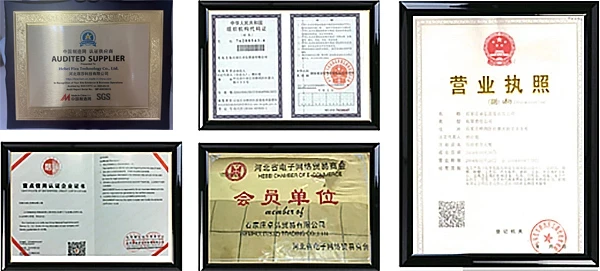



Sodium Hydrogen Sulfate and Its Applications in Chemical Reactions and Industrial Processes
Understanding Sodium Hydrogen Sulfate Properties, Uses, and Applications
Sodium hydrogen sulfate, commonly referred to as sodium bisulfate, is an inorganic compound with the chemical formula NaHSO₄. This white, crystalline substance is often utilized in various industrial and household applications owing to its unique properties. Being a bisulfate salt, it plays a pivotal role in chemical reactions and processes across many sectors. In this article, we will delve into the properties, uses, and potential applications of sodium hydrogen sulfate.
Chemical Properties
Sodium hydrogen sulfate is a bisulfate salt formed by the neutralization of sulfuric acid (H₂SO₄) with sodium hydroxide (NaOH) or sodium carbonate (Na₂CO₃). The compound has a molar mass of approximately 120.06 g/mol and is typically found in solid form as white hygroscopic crystals or powder. It is highly soluble in water, where it dissociates into sodium ions (Na⁺) and hydrogen sulfate ions (HSO₄⁻).
In solution, sodium hydrogen sulfate is a moderately strong acid, capable of donating protons and interacting with various substances. Its pH typically ranges between 1.5 to 2.5 in dilute solutions, making it useful for pH adjustment in numerous applications. Importantly, it also acts as a reducing agent in certain chemical reactions, fostering its role in various industrial processes.
Industrial Uses
Sodium hydrogen sulfate is predominantly utilized in the chemical industry as a source of sulfuric acid. Its acidic properties make it an effective ingredient in applications ranging from cleaning agents to acidifying food products. One of the main industrial applications is in the manufacturing of pH regulators and cleaning agents, especially in the textile and metal industries. For example, it is employed to remove rust from metals or to clean surfaces by lowering the pH of solutions, thus helping in the dissolution of undesirable materials.
Moreover, sodium bisulfate is commonly used in the production of other chemicals. It serves as a precursor for synthesizing sodium sulfate (Na₂SO₄), which is widely used in the detergents and glass industries. Additionally, sodium bisulfate is involved in the production of various food additives, where it is utilized as a preservative and acidity regulator. The compound is recognized as a Generally Recognized as Safe (GRAS) substance when used in food products, underscoring its versatility and acceptance in the food industry.
natrium hydrogen sulfate

Applications in Household Products
Beyond industrial use, sodium hydrogen sulfate is found in various household products. It is often included in pool maintenance products, where it helps to lower the pH and prevent the growth of algae. Additionally, sodium bisulfate is utilized in various cleaning formulations, such as toilet bowl cleaners and other household cleaning agents, due to its ability to effectively break down stains and residues.
Furthermore, sodium hydrogen sulfate is a popular choice in personal care products, including hair care and cosmetics. It is used in some shampoos and conditioners to adjust pH levels, ensuring product stability and optimal performance. Its mild acidic nature allows for effective cleaning without causing significant irritation, making it suitable for a range of personal care applications.
Safety and Handling
While sodium hydrogen sulfate is generally safe for use, it is important to handle it with care. As with any chemical, exposure to concentrated amounts can cause irritation to the skin, eyes, and respiratory system. When working with sodium bisulfate, it is advisable to wear appropriate personal protective equipment, such as gloves and goggles, to minimize risks.
In terms of environmental impact, sodium bisulfate is considered to have a low toxicity profile. However, its use should be managed to prevent excessive release into water bodies, as high concentrations can alter aquatic ecosystems.
Conclusion
Sodium hydrogen sulfate is a multifaceted compound with a wide array of applications across various industries. From metal cleaning and textile treatment to food preservation and personal care, its acidic properties and versatility make it a valuable substance. As industries continue to innovate and expand, sodium bisulfate will likely maintain its relevance in a myriad of applications, underpinning the importance of understanding chemicals in our daily lives. Whether at home or in industrial settings, sodium hydrogen sulfate plays a crucial role in ensuring efficiency, safety, and effectiveness.
-
Why Sodium Persulfate Is Everywhere NowNewsJul.07,2025
-
Why Polyacrylamide Is in High DemandNewsJul.07,2025
-
Understanding Paint Chemicals and Their ApplicationsNewsJul.07,2025
-
Smart Use Of Mining ChemicalsNewsJul.07,2025
-
Practical Uses of Potassium MonopersulfateNewsJul.07,2025
-
Agrochemicals In Real FarmingNewsJul.07,2025
-
Sodium Chlorite Hot UsesNewsJul.01,2025










